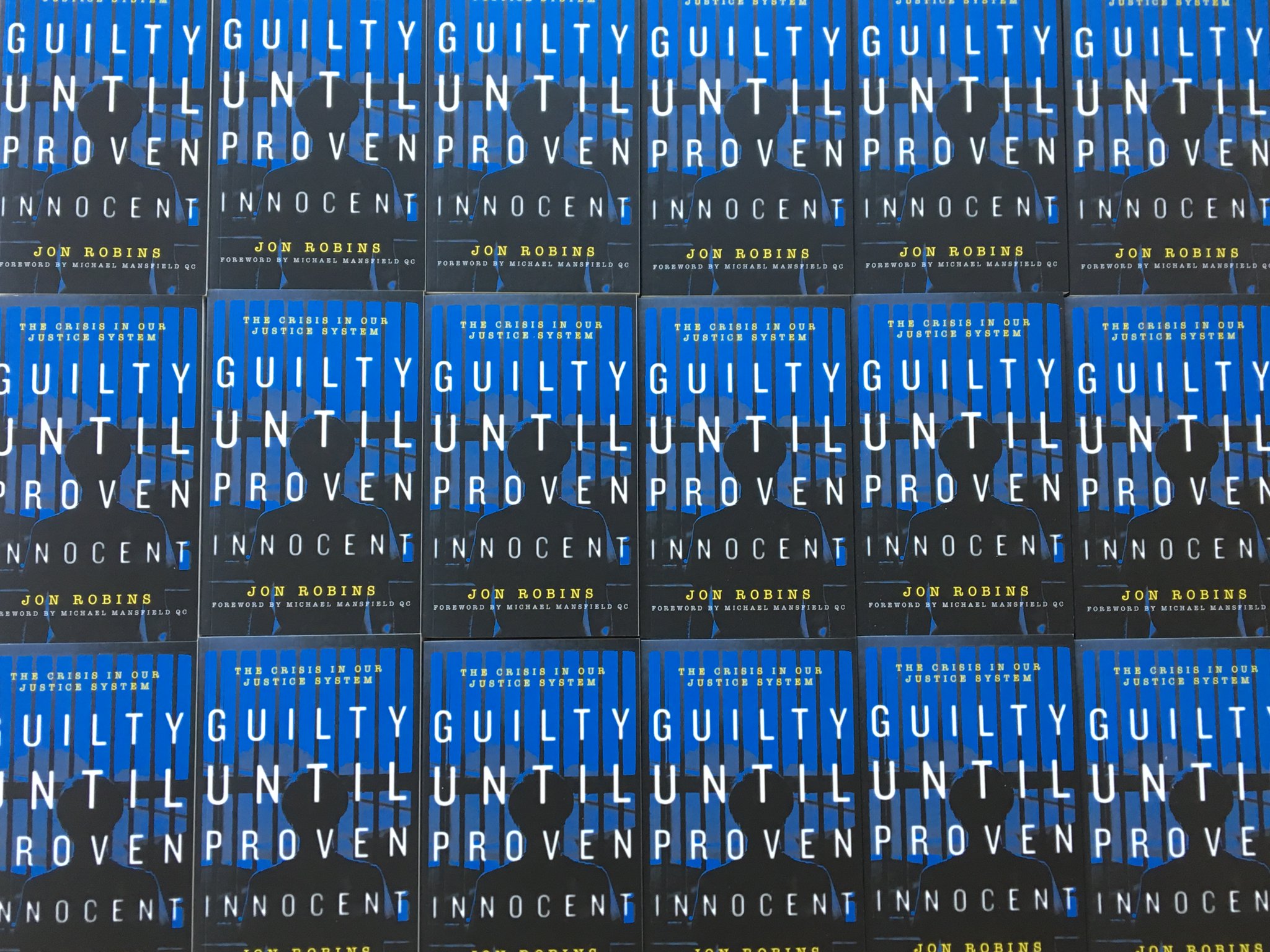‘An important account of real problems that have been swept aside for decades’
REVIEW: There can be little doubt that there is a crisis in our justice system. The Law Society and Criminal Law Solicitors Association have both (separately) launched judicial review proceedings against the Ministry of Justice in the midst of funding cuts, and barristers have been refusing to accept new casework in protest at a new funding regime. This book tells a sobering story, or rather set of stories, that have contributed to the present crisis of legitimacy in the criminal justice process. Dr Lucy Welsh reviews Guilty Until Proven Innocent
Author: Jon Robins
Publisher: Biteback Publishing
ISBN: 978-1-785-90369-4
Price: £12.99
There can be little doubt that there is a crisis in our justice system. The Law Society and Criminal Law Solicitors Association have both (separately) launched judicial review proceedings against the Ministry of Justice in the midst of funding cuts, and barristers have been refusing to accept new casework in protest at a new funding regime. This book tells a sobering story, or rather set of stories, that have contributed to the present crisis of legitimacy in the criminal justice process.
Guilty Until Proven Innocent offers, through an analysis of real criminal cases allied with an in-depth understanding of appeal procedures, a full and compelling narrative about how miscarriages of justice occur and what could be done to prevent and to rectify them. It is an important account of real problems in criminal procedure that have been swept aside for decades.
Bringing history to the present
Jon Robins has skillfully interwoven case histories into the modern narrative of problems that exist within the criminal justice system. He uses each chapter to describe the details of either an alleged or a proven miscarriage of justice and to then highlight common themes across these cases. By doing so, he is also able to provide an account which examines how the system developed in a haphazard style —usually in response to crisis—following the creation of the Court of Appeal in 1907.
Robins goes on to scrutinise how the system fell into its present state of crisis brought about by disclosure failings, problems with expert evidence, a chronic lack of funding and concerns about the robustness of the Court of Appeal. The book offers a concise understanding of the big issues and landscape that is all too familiar to lawyers who work within the criminal justice system. As an academic lawyer, it provides not only compelling reading but also important material for anyone teaching and conducting research in the field of criminal justice.
The strength of Robins’s feeling for the subject of miscarriages of justice is clear from the lively and engaging way that this book has been written. That is not to say that it has been written in a superficial way—quite the opposite. The book provides a comprehensive overview of the cases that are used to frame the discussion about how (alleged) miscarriages of justice have occurred. The compelling style in which this book has been written means that it is accessible for lawyers and non-lawyers alike. Both those with an interest in criminal justice and those without such an interest would learn a lot, and be engaged by the sequence of events that is offered. It is a book I would recommend to anyone who wants to know more about our criminal appeal system.
Notwithstanding the way that Robins has been able to use case histories to highlight issues in criminal justice, the reader will be able to detect a genuine sense of compassion in the case analysis. Robins has clearly spent many hours carefully engaged in extremely difficult conversations with those who have been the victims of (alleged) miscarriages of justice, and their friends and families. That is not to say that he examines the issues with an uncritical eye, but rather means that Robins is able to offer a holistic account and understanding of the impact of alleged wrongful convictions on those who have been so convicted, on their families and friends, and on the legitimacy of the criminal justice system.
Dr Lucy Welsh, Lecturer in Law at University of Sussex. Guilty Until Proven Innocent—The Crisis in Our Justice System by Jon Robins is available to buy here.
First published on June 12, 2018. The review first appeared in the New Law Journal here







